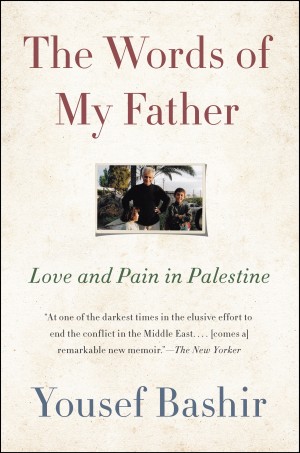By
– September 1, 2011
If Gregory Levey knows how to solve the Middle East crisis, he’s not telling. Given the flip title, it may be unfair to expect anything other than a satirical look at the situation there, but Levey’s tone throughout the book is hard to interpret, as he manages to seem earnest without ever seeming vested in finding an answer, and he never takes the steps an earnest person, or a truly funny person would take if they wanted to make manifest the title’s preposterous proposition. What humor that arises is slight and without bite.
Levey, a secular American Jew who was a speechwriter for the Israeli Mission to the UN, and subsequently for Ariel Sharon, despite feeling himself to be significantly more dovish than the former Prime Minister, portrays himself as something of a bewildered naif about the Middle East. Between his highprofile Israeli jobs and his later revelation of having gone to a seriously Zionist day school, however, one suspects he has more knowledge and more of an opinion about the Middle East than he lets on. Or maybe he doesn’t.
After doing a book tour for his first book, Shut Up, I’m Talking: And Other Diplomacy Lessons I Learned in the Israeli Government— A Memoir, and being perplexed by the ardent conviction that Americans along the political spectrum feel about the Israel-Palestine conflict, he tells us deadpan that he decided right then to bring peace to the Middle East in six months.
He has no bold plans though. No outrageous gimmicks. No profound or novel insights. And few laughs. He mostly just interviews people. He interviews a mild-mannered Stephen Walt (one half of “The Jewish Lobby” writing team), Abe Foxman of the Anti Defamation League, and also Israeli politician Yossi Beilin, best known for opening secret peace talks with the Palestinians prior to the Oslo Accords in 1993. He speaks with spokesmen for AIPAC and J Street, American Jewish lobbying groups from the right and the left, and with American Jews and Palestinians married to each other. He speaks with people from the Jewish Defense League and from the International Solidarity Movement, a left-wing Pro- Palestinian organization (sponsors of Rachel Corrie). He goes to a Christians United for Israel conference, and spends time with Arab teenagers from Queens who have assumed Israel’s role at the Model UN. It all amounts to a rather breezy if superficial survey of American opinion on Israel, which had it not been saddled with a provocative title promising (at least) some irreverent humor and/or some novel insight into the situation, might not have been such a let-down. One senses throughout that Levey lacks conviction, that he means to accomplish nothing more than to fulfill his contractual obligation to his publisher, or that he lacked courage, being unwilling to say anything that people less moderate and more vested than he is may get deeply offended by, which given the depth of feeling on this issue, may well have been a very wise thing to do.
Levey, a secular American Jew who was a speechwriter for the Israeli Mission to the UN, and subsequently for Ariel Sharon, despite feeling himself to be significantly more dovish than the former Prime Minister, portrays himself as something of a bewildered naif about the Middle East. Between his highprofile Israeli jobs and his later revelation of having gone to a seriously Zionist day school, however, one suspects he has more knowledge and more of an opinion about the Middle East than he lets on. Or maybe he doesn’t.
After doing a book tour for his first book, Shut Up, I’m Talking: And Other Diplomacy Lessons I Learned in the Israeli Government— A Memoir, and being perplexed by the ardent conviction that Americans along the political spectrum feel about the Israel-Palestine conflict, he tells us deadpan that he decided right then to bring peace to the Middle East in six months.
He has no bold plans though. No outrageous gimmicks. No profound or novel insights. And few laughs. He mostly just interviews people. He interviews a mild-mannered Stephen Walt (one half of “The Jewish Lobby” writing team), Abe Foxman of the Anti Defamation League, and also Israeli politician Yossi Beilin, best known for opening secret peace talks with the Palestinians prior to the Oslo Accords in 1993. He speaks with spokesmen for AIPAC and J Street, American Jewish lobbying groups from the right and the left, and with American Jews and Palestinians married to each other. He speaks with people from the Jewish Defense League and from the International Solidarity Movement, a left-wing Pro- Palestinian organization (sponsors of Rachel Corrie). He goes to a Christians United for Israel conference, and spends time with Arab teenagers from Queens who have assumed Israel’s role at the Model UN. It all amounts to a rather breezy if superficial survey of American opinion on Israel, which had it not been saddled with a provocative title promising (at least) some irreverent humor and/or some novel insight into the situation, might not have been such a let-down. One senses throughout that Levey lacks conviction, that he means to accomplish nothing more than to fulfill his contractual obligation to his publisher, or that he lacked courage, being unwilling to say anything that people less moderate and more vested than he is may get deeply offended by, which given the depth of feeling on this issue, may well have been a very wise thing to do.
Read Gregory Levey’s Posts for the Visiting Scribe
The Middle East in the Middle of the Night
Baxter and Me
The Question
Eric Ackland is a freelance writer.





